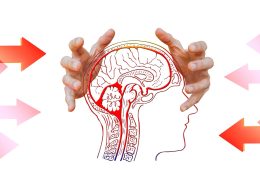When it comes to healthcare, making decisions that are ethical and moral can be challenging. Healthcare providers often face the dilemma of balancing the autonomy of their patients with paternalism. While patients have the right to make their own medical choices, doctors also have a duty to act in their patient’s best interest. How then do we find the middle ground between autonomy and paternalism? In this blog post, we’ll explore these principles and dive into a case study that demonstrates how difficult these ethical decisions can be. So grab your coffee or tea, settle in, and let’s get started!
What is the principle of autonomy?
In healthcare, the principle of autonomy refers to a patient’s right to make decisions about their own medical treatment. This includes everything from consenting to treatment plans and procedures, choosing between different treatments, or even refusing medical interventions altogether.
The principle of autonomy recognizes that patients have personal preferences and values that may influence their decision-making process. It is based on the idea that individuals should have control over what happens to them in terms of medical care.
Healthcare providers are obligated to respect their patient’s autonomy by providing accurate information and education regarding potential risks and benefits associated with different interventions. They must also support their patient’s ability to make informed decisions without imposing any external influences.
However, there are situations where a patient may lack capacity due to illness or injury, which can complicate matters when it comes to respecting autonomy. In these cases, surrogate decision-makers may be appointed according to legal protocols set forth by state law.
What is the principle of paternalism?
In healthcare, the principle of paternalism refers to the act of making decisions on behalf of a patient based on what the healthcare provider believes is in their best interest. This can be seen as an ethical dilemma when it conflicts with the principle of autonomy, which emphasizes a patient’s right to make their own decisions about their health and treatment.
The concept of paternalism has been around for centuries, dating back to ancient Greece where physicians were viewed not only as healers but also as moral guides. It wasn’t until much later that this concept was questioned and challenged by patients who wanted more control over their own care.
Despite its controversial nature, there are situations where paternalism may be necessary, such as when a patient lacks decision-making capacity or is at risk of harm due to refusing recommended treatments. However, it is important for healthcare providers to approach these situations with caution and always prioritize informed consent and respect for patient autonomy whenever possible.
Ultimately, finding balance between the principles of autonomy and paternalism requires careful consideration and communication between patients and healthcare providers. By working together towards shared decision-making goals, we can ensure that each individual receives personalized care that respects both their rights and needs.
How can these two principles be balanced in healthcare?
When it comes to decision-making in healthcare, balancing the principles of autonomy and paternalism can be a challenge. The principle of autonomy emphasizes an individual’s right to make their own decisions about their health and medical treatment without interference from others. On the other hand, paternalism prioritizes the healthcare provider’s obligation to act in the patient’s best interest, even if this means overriding the patient’s wishes.
One way to balance these two principles is through shared decision-making between patients and providers. This approach involves open communication and collaboration between both parties, allowing for a better understanding of each other’s perspectives and values. By involving patients in decision-making processes, they are empowered to take an active role in their care while still receiving expert guidance from healthcare providers.
Another strategy for finding a balance between autonomy and paternalism is by considering ethical guidelines that prioritize respect for individuals’ rights while ensuring that actions taken always benefit them. These guidelines often involve informed consent procedures where patients are fully aware of all available treatment options along with potential risks involved before making any final decisions regarding their health.
Ultimately, finding an appropriate balance between autonomy and paternalism requires careful navigation within complex ethical waters. However, with proper consideration given towards shared decision-making approaches as well as established ethical guidelines that prioritize respect for individuals’ rights while ensuring benefits outweigh risks or harm caused by interventions – it is possible to achieve optimal outcomes for everyone involved!
Case Study: The Ethics of Withholding Treatment
Case Study: The Ethics of Withholding Treatment
One of the most complex ethical dilemmas in healthcare revolves around the issue of withholding treatment. When a patient refuses life-saving medical care, should their autonomy be respected, or is it ethically justifiable to override their desires and impose paternalistic measures?
Take the case of a terminally ill cancer patient who requests palliative care instead of chemotherapy. While respecting patient autonomy seems like an obvious choice here, physicians may face legal action if they fail to provide adequate treatment that would prolong life. In such cases, balancing these two principles becomes increasingly difficult.
Another example involves patients with severe mental illnesses who refuse medication despite requiring it for recovery. Should healthcare providers force them into taking medication against their will when non-compliance could result in further harm or even death?
Deciding whether to honor autonomy or enforce paternalism can never be simplified as black and white in healthcare settings. Each situation requires careful consideration of all aspects involved before making any decision on behalf of the patient’s well-being.
Conclusion
The principle of autonomy and paternalism are both critical in healthcare decision-making. It is crucial to respect a patient’s right to decide for themselves while also considering their best interests, especially when they are unable to make decisions due to illness or incapacity.
To strike a balance between these two principles, healthcare providers should strive for effective communication with patients and their families. Empathy, transparency, and honesty go a long way in building trust between patients and providers.
Moreover, ethical dilemmas may arise in situations where it seems necessary to withhold treatment from a patient. In such cases, health professionals must weigh the risks versus benefits before making any decisions.
Ultimately, ethical decision-making requires compassion towards those who depend on us for care. By prioritizing our patients’ well-being above all else and adhering to ethical principles that guide our practice ensures that we maintain high standards of care within the healthcare industry.












